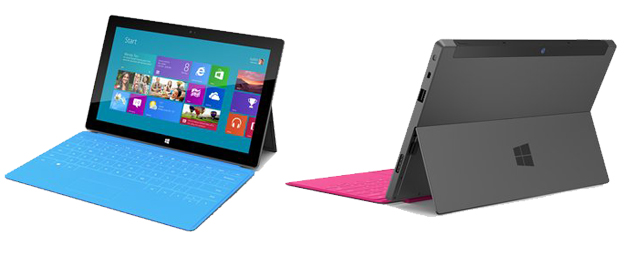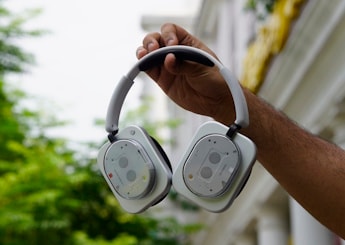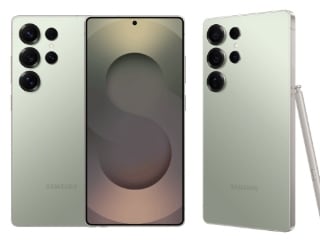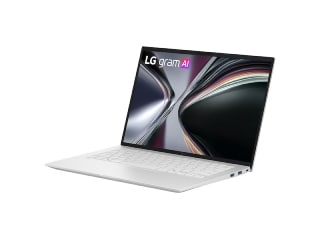- Home
- Tablets
- Tablets News
- Microsoft to fight piracy in China with Surface
Microsoft to fight piracy in China with Surface

That might change with the launch of its Surface tablet, which goes on sale online in China at the same time as a handful of other countries. The Surface is a rare piece of Microsoft hardware, and will run the company's new Windows 8 operating system.
While both Windows 8 and the Surface are Microsoft's global challenge to assaults by Apple Inc's iPad and tablets running Google Inc's Android operating system, analysts say the company's splash is a sign of its determination to crack the elusive yet vital China market.
"The fact that there is no (release) delay and they are treating China as one of their primary markets reflects how important China is to Microsoft and I think that's evident in how they plan to launch Surface," said Adam Leach, a London-based analyst with technology consulting firm Ovum.
Microsoft chose Shanghai as its first global site for what it called a "pre-launch" of Windows 8 on Tuesday. Speaking to an enthusiastic audience, Windows head Steve Sinofsky began his speech in Mandarin before launching into his sales pitch for Windows 8. The full launch will take place in New York on Thursday.
The tablet will be sold from Friday in China through Suning Appliance Co Ltd's website and retail stores as well as Microsoft's online China store.
Microsoft, the world's biggest software maker, has long struggled to monetise China. Its biggest problem has been piracy. Since opening its first Beijing office in 1992, Microsoft has found it hard to gain traction among Chinese consumers unwilling to pay full price for software.
According to a Business Software Alliance report in May, China had an illegal software market worth nearly $9 billion last year or a piracy rate of 77 percent. A pirated copy of Microsoft Office can be found for as little as $2 against an official price of up to 398 yuan.
Fighting pirates
After years of symbolic raids on software pirates and pronouncements, Microsoft has in recent years changed tack, prodding the government to get pirated software off its computers and replace it with legitimate copies. Although progress is being made, it is not necessarily benefiting Microsoft, analysts said.
State-owned enterprises have offices and subsidiaries spread across the country, slowing down the process, said Bryan Wang, China principal analyst at Forrester Research, while those who do replace their pirated software tend to opt for a much cheaper local variant called Kingsoft WPS.
"It's going to take some time," he said.
Microsoft's other businesses have also not fared so well in China. Since its launch in 2009, Microsoft's search engine Bing is still in beta mode and a sales ban on video game consoles in China means its popular Xbox cannot be sold legally in the country.
In the second quarter, Microsoft's smartphone software had a negligible share of the market while Apple's iPhone accounted for 6 percent of the market and Android phones for 83 percent, according to Analysys International. Local media reported that Nokia is due to launch its first Windows 8 Phone in China by the end of the year.
At first blush it faces a similar uphill battle in tablets. Sales of Apple's iPad accounted for 71 percent of tablets sold in the third quarter. Lenovo Group garnered 11 percent and Samsung Electronics 4 percent. Apple announced on Tuesday a smaller version of its iPad, adding to the already crowded field of choices.
But Microsoft believes it has prepared the ground to win over skeptics. In its favour is a fast-growing collection of software applications usually called apps already popular among Chinese users of Apple and Android devices.
Microsoft has persuaded Chinese developers such as Tencent Holdings, Sina Corp and PPTV to develop Windows 8 versions of their popular apps that will run on the Surface in advance of the launch.
That means that while globally the Surface will have fewer apps than Google's Play store and the Apple's App Store, the Windows App Store in China will have the second-highest number of apps globally when Windows 8 is launched, according to Ralph Haupter, Microsoft's China chief executive.
Atop that is the familiarity of Microsoft's operating system and office applications.
"I already have an iPad and a Galaxy Note but there are two major constraints with both products, they can't use USB and they can't handle Microsoft Office documents," said one customer who gave only her surname, Ma, who ordered her RT Surface online.
Also working in its favor is the price. A 32-gigabyte model of the Surface will sell in China for 3,688 yuan, about 800 yuan cheaper than a similar model of iPad sold by Apple. Pricing for the iPad mini was set at $329, which was higher than expected.
Some doubt this is low enough to win over users.
"Chinese consumers like foreign brands but they are still price sensitive. Microsoft's dominance is in software and while the introduction of Surface is good for the Chinese market it needs to be even cheaper if it wants to be more competitive," said Li Yanyan, an analyst with Beijing-based research firm Analysys International.
© Thomson Reuters 2012
Get your daily dose of tech news, reviews, and insights, in under 80 characters on Gadgets 360 Turbo. Connect with fellow tech lovers on our Forum. Follow us on X, Facebook, WhatsApp, Threads and Google News for instant updates. Catch all the action on our YouTube channel.
Related Stories
- Samsung Galaxy Unpacked 2026
- iPhone 17 Pro Max
- ChatGPT
- iOS 26
- Laptop Under 50000
- Smartwatch Under 10000
- Apple Vision Pro
- Oneplus 12
- OnePlus Nord CE 3 Lite 5G
- iPhone 13
- Xiaomi 14 Pro
- Oppo Find N3
- Tecno Spark Go (2023)
- Realme V30
- Best Phones Under 25000
- Samsung Galaxy S24 Series
- Cryptocurrency
- iQoo 12
- Samsung Galaxy S24 Ultra
- Giottus
- Samsung Galaxy Z Flip 5
- Apple 'Scary Fast'
- Housefull 5
- GoPro Hero 12 Black Review
- Invincible Season 2
- JioGlass
- HD Ready TV
- Latest Mobile Phones
- Compare Phones
- Realme P4 Lite
- Vivo V70
- Vivo V70 Elite
- Google Pixel 10a
- Tecno Camon 50
- Tecno Camon 50 Pro
- Lava Bold N2
- Vivo V60 Lite 4G
- LG Gram 14 (2026)
- Asus Vivobook 16 (M1605NAQ)
- Infinix Xpad 30E
- Brave Ark 2-in-1
- Amazfit T-Rex Ultra 2
- boAt Chrome Iris
- Xiaomi QLED TV X Pro 75
- Haier H5E Series
- Asus ROG Ally
- Nintendo Switch Lite
- Haier 1.6 Ton 5 Star Inverter Split AC (HSU19G-MZAID5BN-INV)
- Haier 1.6 Ton 5 Star Inverter Split AC (HSU19G-MZAIM5BN-INV)







![[Partner Content] OPPO Reno15 Series: AI Portrait Camera, Popout and First Compact Reno](https://www.gadgets360.com/static/mobile/images/spacer.png)









